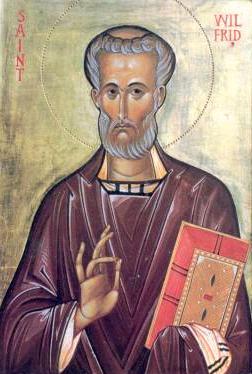Calendar year
| Millennium: | 1st millennium |
|---|---|
| Centuries: | |
| Decades: | |
| Years: |
| 665 by topic |
|---|
| Leaders |
| Categories |
| Gregorian calendar | 665 DCLXV |
| Ab urbe condita | 1418 |
| Armenian calendar | 114 ԹՎ ՃԺԴ |
| Assyrian calendar | 5415 |
| Balinese saka calendar | 586–587 |
| Bengali calendar | 72 |
| Berber calendar | 1615 |
| Buddhist calendar | 1209 |
| Burmese calendar | 27 |
| Byzantine calendar | 6173–6174 |
| Chinese calendar | 甲子年 (Wood Rat) 3362 or 3155 — to — 乙丑年 (Wood Ox) 3363 or 3156 |
| Coptic calendar | 381–382 |
| Discordian calendar | 1831 |
| Ethiopian calendar | 657–658 |
| Hebrew calendar | 4425–4426 |
| Hindu calendars | |
| - Vikram Samvat | 721–722 |
| - Shaka Samvat | 586–587 |
| - Kali Yuga | 3765–3766 |
| Holocene calendar | 10665 |
| Iranian calendar | 43–44 |
| Islamic calendar | 44–45 |
| Japanese calendar | Hakuchi 16 (白雉16年) |
| Javanese calendar | 556–557 |
| Julian calendar | 665 DCLXV |
| Korean calendar | 2998 |
| Minguo calendar | 1247 before ROC 民前1247年 |
| Nanakshahi calendar | −803 |
| Seleucid era | 976/977 AG |
| Thai solar calendar | 1207–1208 |
| Tibetan calendar | 阳木鼠年 (male Wood-Rat) 791 or 410 or −362 — to — 阴木牛年 (female Wood-Ox) 792 or 411 or −361 |

Year 665 (DCLXV) was a common year starting on Wednesday (link will display the full calendar) of the Julian calendar. The denomination 665 for this year has been used since the early medieval period, when the Anno Domini calendar era became the prevalent method in Europe for naming years.
Events
By place
Europe
- Kubrat, ruler (khagan) of Great Bulgaria, dies after a 33-year reign. He is succeeded by his son Batbayan, who rules from Poltava (modern Ukraine), the lands north of the Black Sea, and the Sea of Azov.
Britain
- Conflict erupts between King Sighere of Essex and his brother Sæbbi, as they struggle for overlordship between Mercia and Wessex.
Arabian Empire
- Muslim Conquest: An Arab army (40,000 men) advances through the desert, and captures the Byzantine city of Barca (Libya).
Asia
- The city of Seongnam (South Korea) is renamed Hansanju (approximate date).
- Wu Zetian, the wife of the Chinese emperor, unofficially becomes an absolute ruler by eliminating her political rivals.
By topic
Religion
- Wilfrid, Anglo-Saxon abbot, refuses to be consecrated in Northumbria as bishop, and travels to Compiègne (France) to be consecrated by Agilbert, archbishop of Paris.
- Jaruman, bishop of Mercia, is dispatched with Christian missionaries to reconvert Saxon tribes, which have returned to paganism.
- According to the Annales Cambriae, the Anglo-Saxons convert to Christianity after the Second Battle of Badon.
- Sighere encourages his subjects to reject Christianity and return to their indigenous religion (approximate date).
Science
- Brahmagupta writes his Khandakhadyaka.
Births
- Ōtomo no Tabito, Japanese poet (d. 729)
- Sa'id ibn Jubayr, Muslim scholar (d. 714)
Deaths
- April 16 – Fructuosus of Braga, French archbishop
- Féchín of Fore, Irish monk and saint
- Hafsa bint Umar, wife of Muhammad
- Kubrat, ruler (khagan) of Great Bulgaria
- Li Zhong, prince of the Tang dynasty (b. 643)
- Yu Zhining, chancellor of the Tang dynasty (b. 588)
References
- Mayr-Harting 1991, pp. 129–147.
- Mayr-Harting 1991, p. 117.
- Glick, Thomas F.; Livesey, Steven; Wallis, Faith, eds. (2014). Medieval Science, Technology, and Medicine: An Encyclopedia. Routledge. p. 464. ISBN 978-1-135-45939-0.
Sources
- Mayr-Harting, Henry (1991). The Coming of Christianity to Anglo-Saxon England. Pennsylvania State University Press. ISBN 0-271-00769-9.